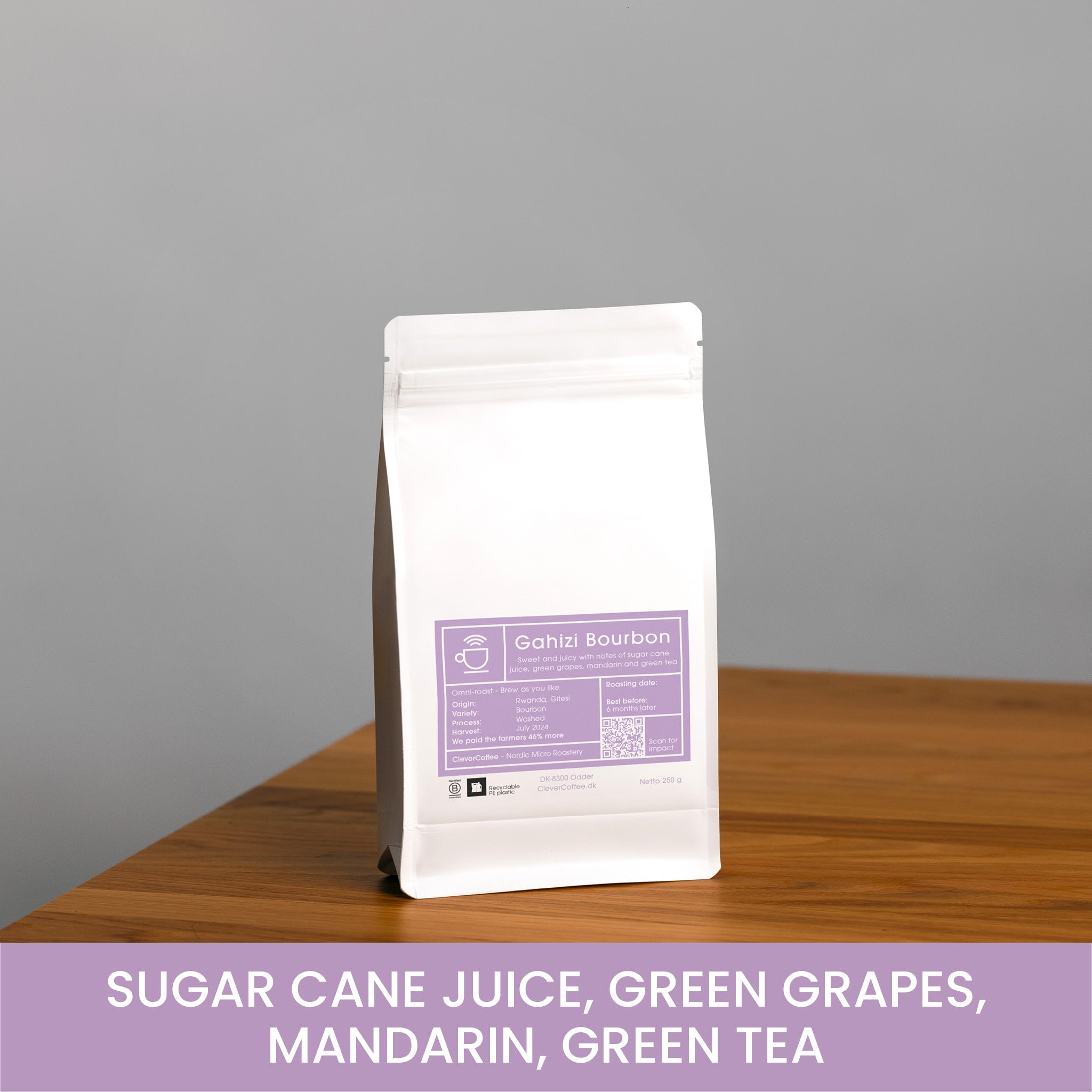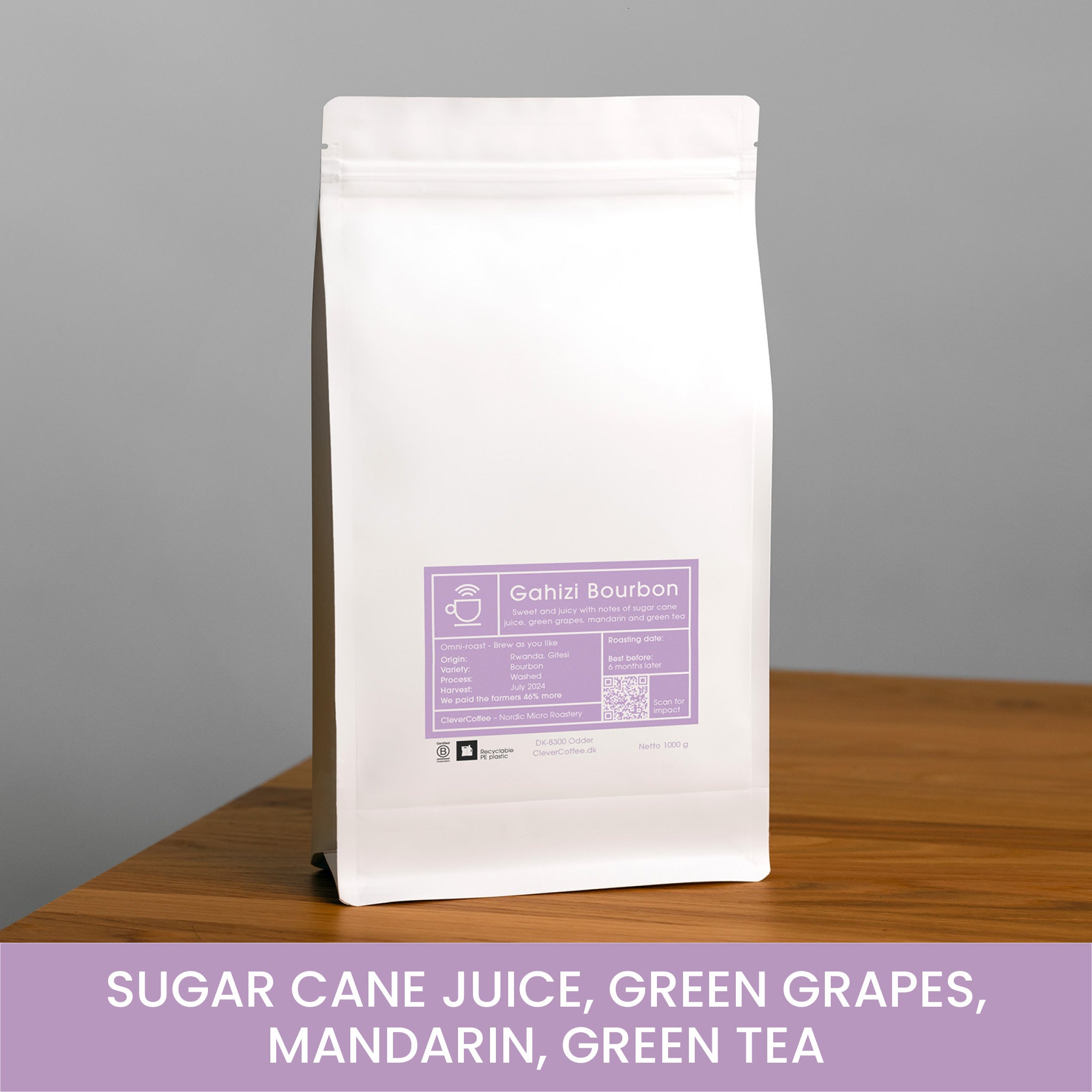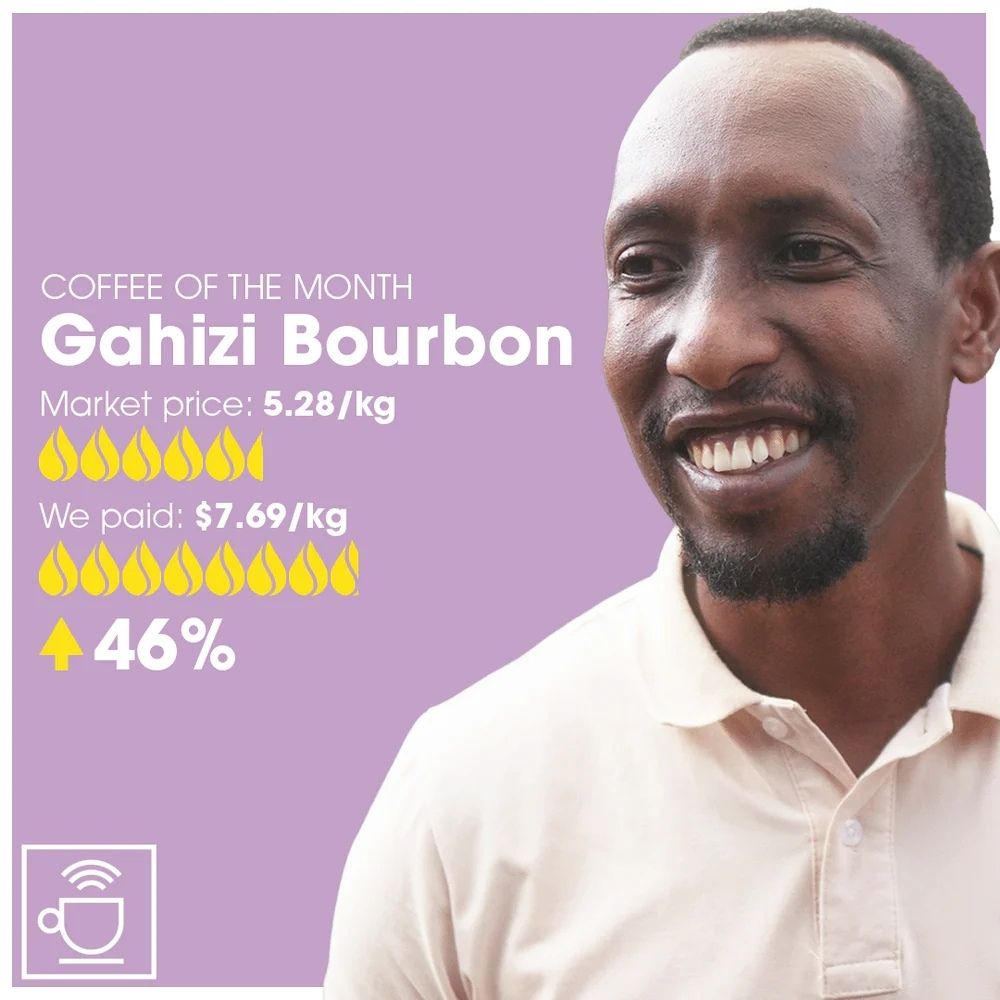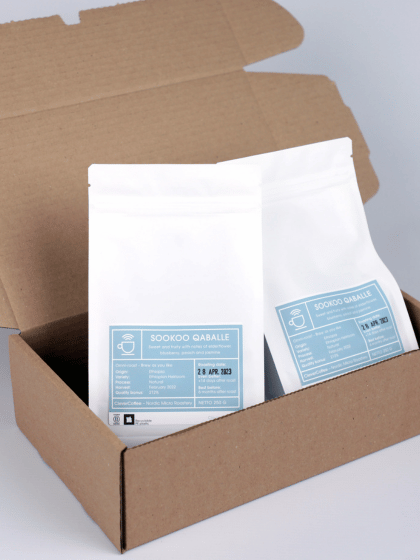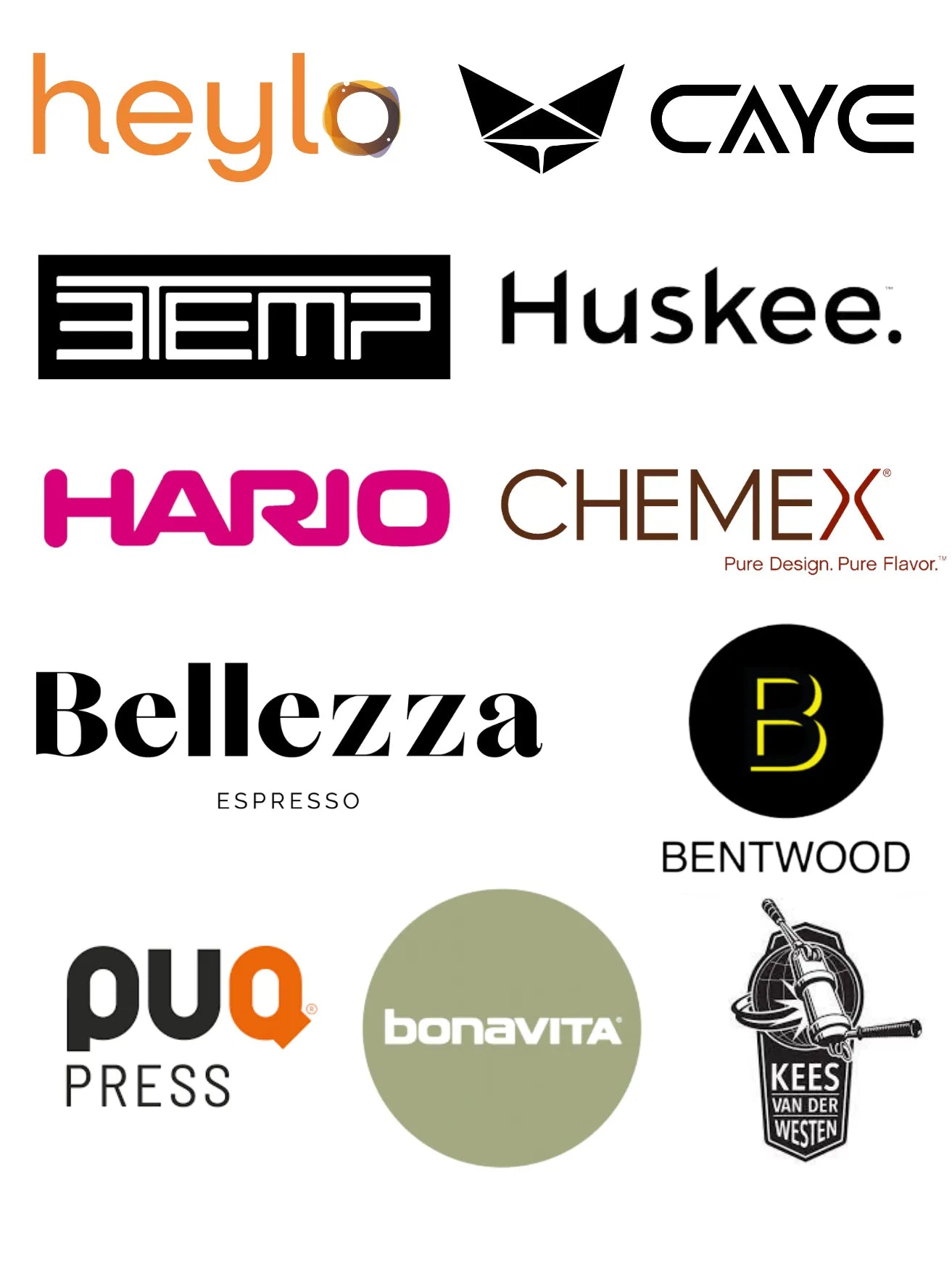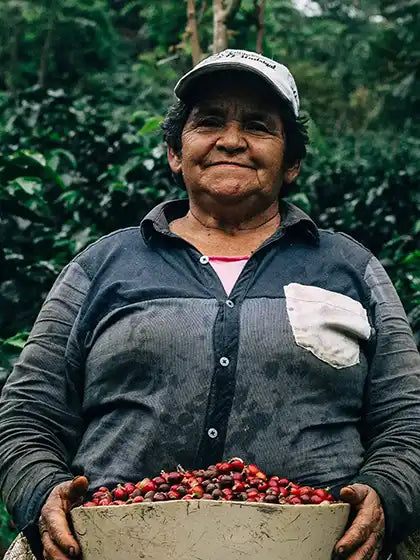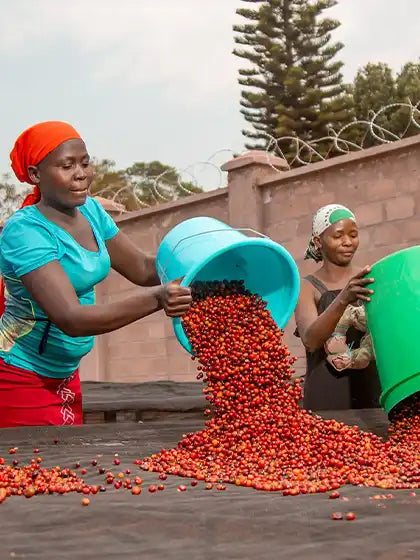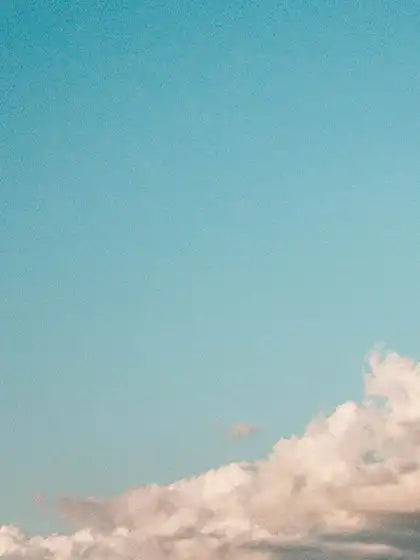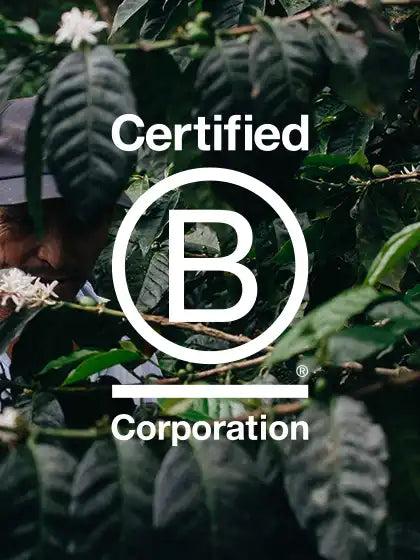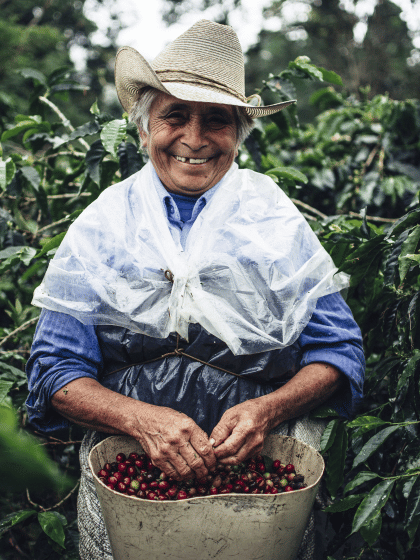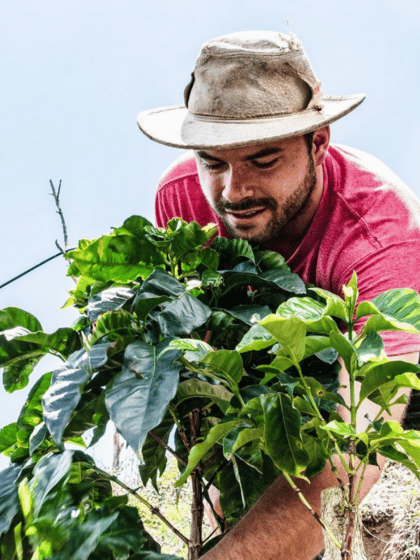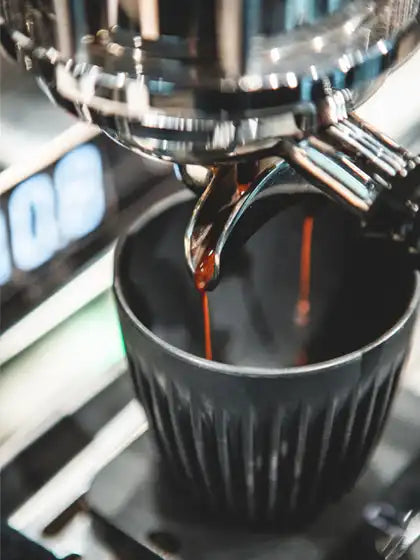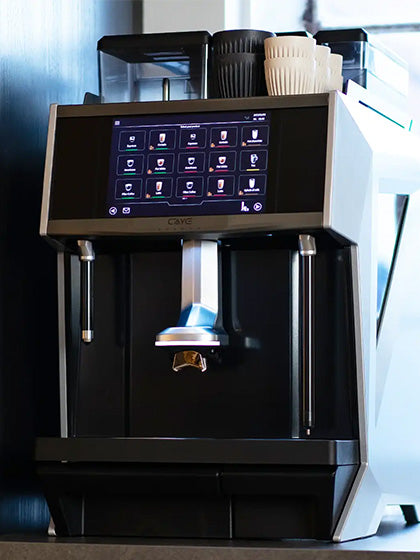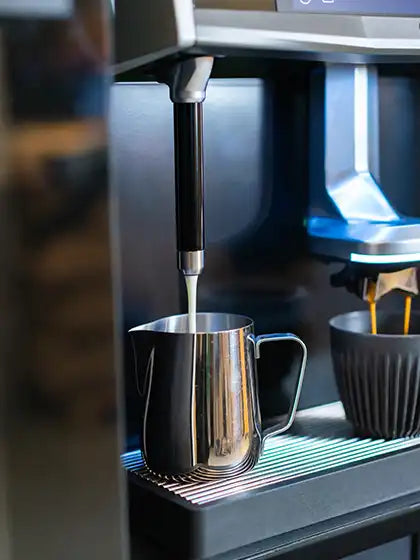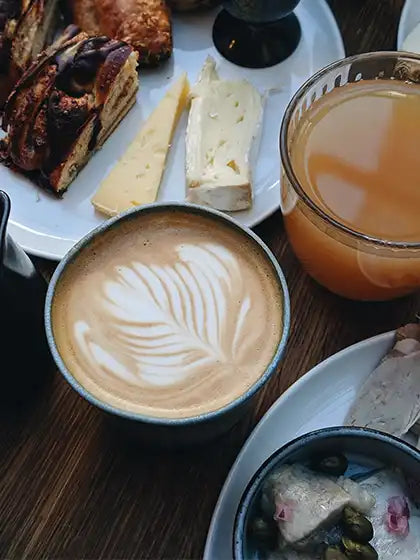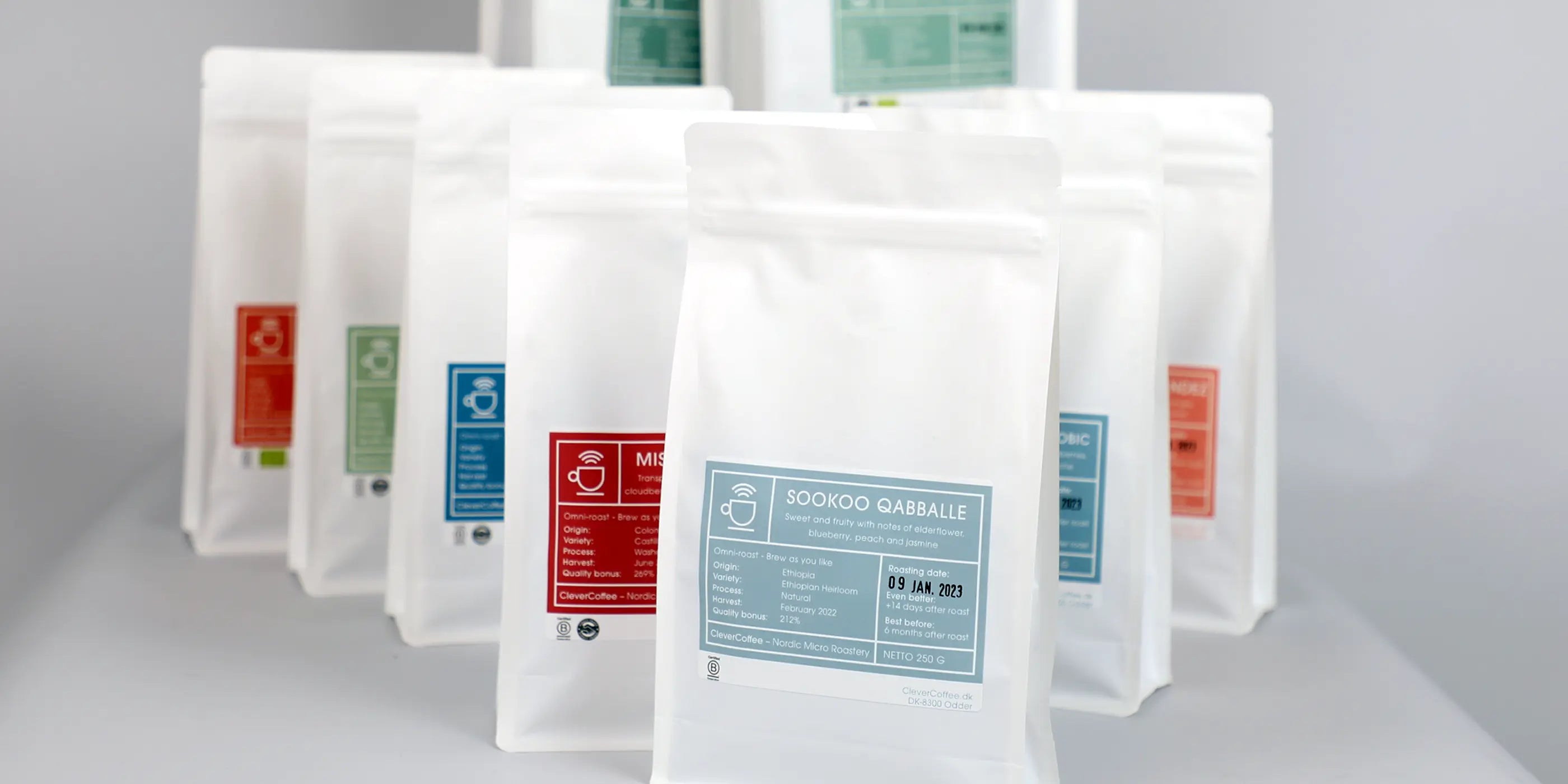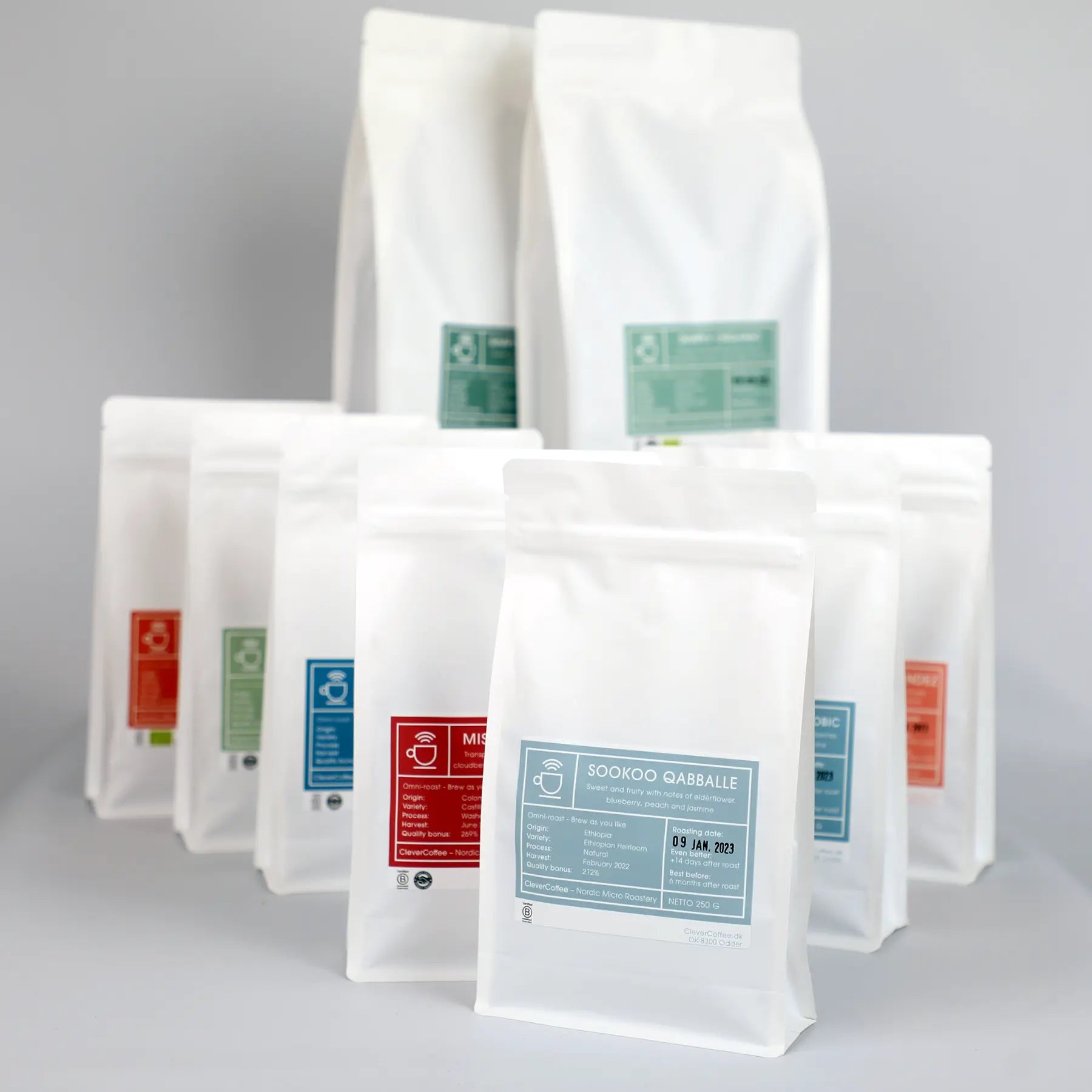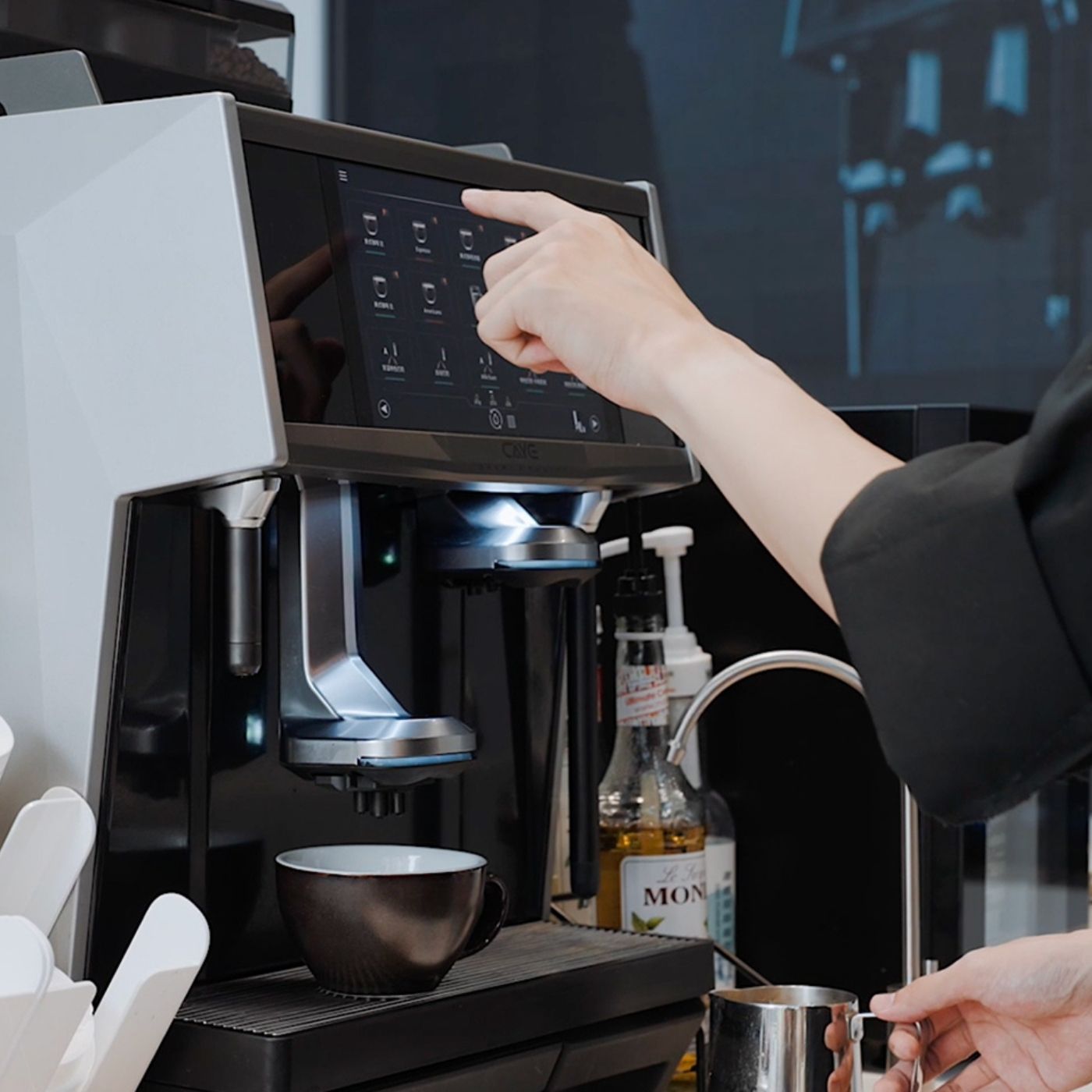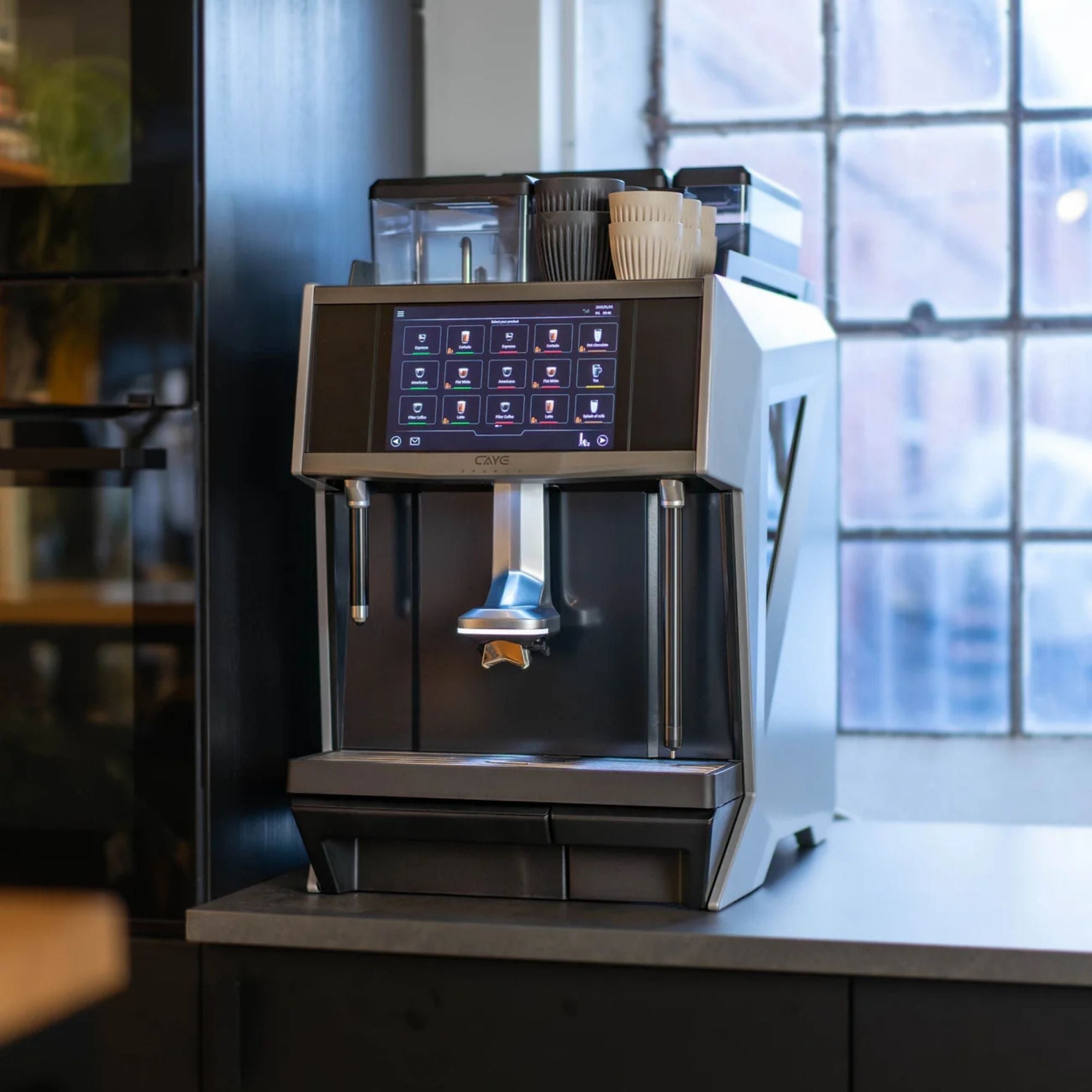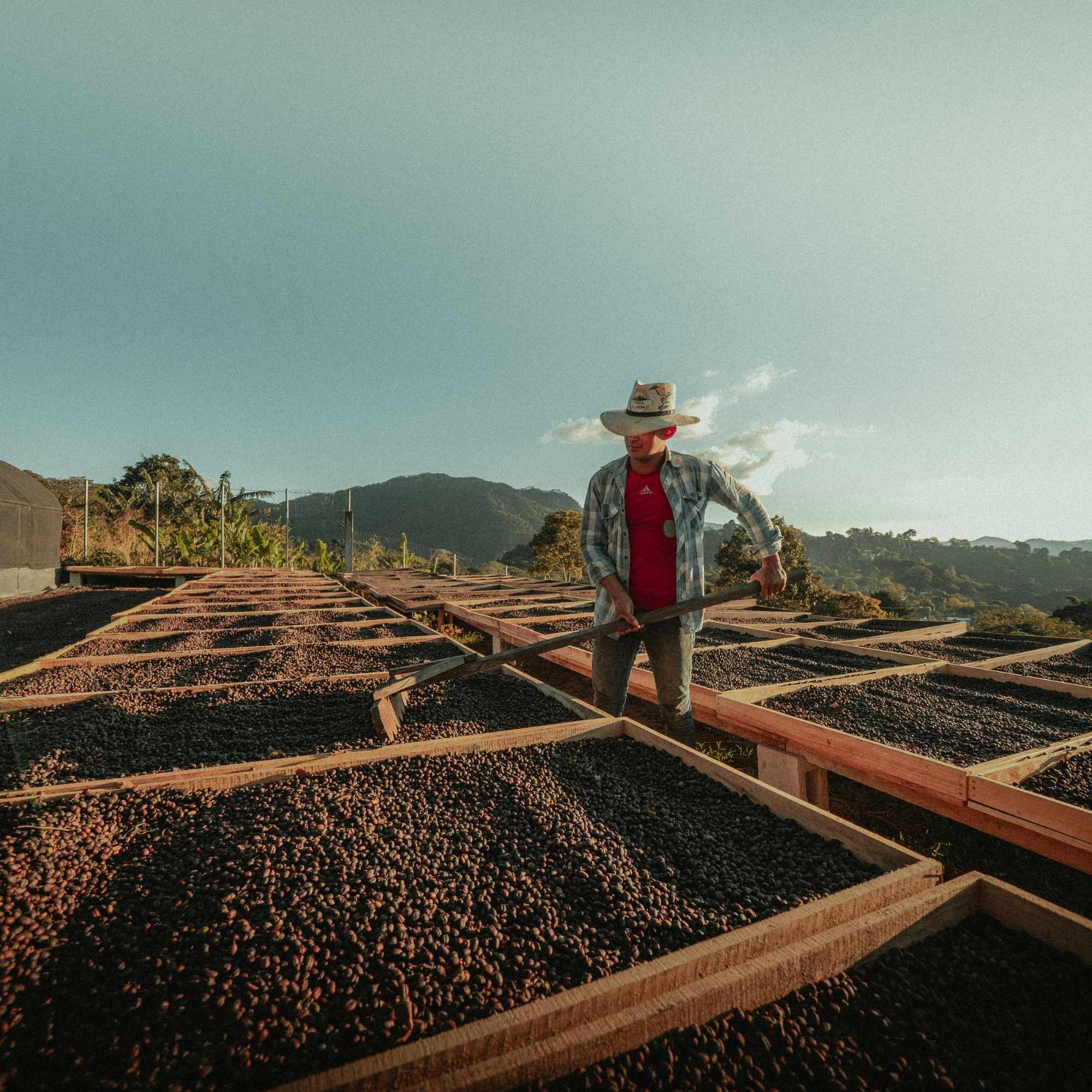Gitesi – a family-run washing station in Rwanda
Gitesi is a privately owned washing station in western Rwanda, run by father and son, Alexis and Aime Gahizi.
Alexis, born and raised in Karongi district, where Gitesi is located, comes from a family with generations of experience in coffee production. His son, Aime, has a background in engineering and has developed an innovative water purification system for handling wastewater – a method now used at washing stations across Rwanda.
Coffee processing
More than 1,800 local farmers supply their coffee berries to Gitesi, and good relations with the local community are essential. Alexis and Aime ensure fair prices and competitive conditions for the farmers, so they can continue to deliver quality coffee.
After delivery, the skin, pulp and approximately 70% of the pulp are removed from the coffee cherries. The beans then undergo dry fermentation for 10-12 hours, are sorted by quality, washed in channels and placed in clean water for 16 hours.
The coffee is then placed on pre-drying tables in the shade, where thorough sorting is carried out while the beans are still wet, as defects are more easily identified at this stage. Finally, the beans are dried on African drying beds for up to 15 days.
Efforts for farmers and local communities
Gitesi has implemented a modern wastewater management system and produces organic fertilizer based on coffee waste. They also run a pilot program where farmers are trained to grow alternative crops, providing them with a source of income outside the coffee season.
To ensure high quality, Gitesi has also introduced a bonus system where, in addition to their payment upon delivery, farmers receive an extra bonus at the end of the season for the batches that perform best.
In addition to coffee production, Gitesi is involved in various initiatives to benefit farmers and the local community, including:
- A coffee nursery with 15,000-50,000 trees, which are distributed free of charge to farmers
- Distribution of pumps and agricultural tools
- An annual program where cows are distributed to local farmers as an additional source of income and organic fertilizer. Firstborn calves are passed on to other farmers to spread the benefits more widely in the local community
- Health insurance for approximately 100 low-income farmers annually
- Training in economic and agricultural management
- Free distribution of organic fertilizer made from coffee waste and guidance on its use
Through these initiatives, Gitesi works to support strong and long-term coffee cultivation and improve living conditions in the local community.
